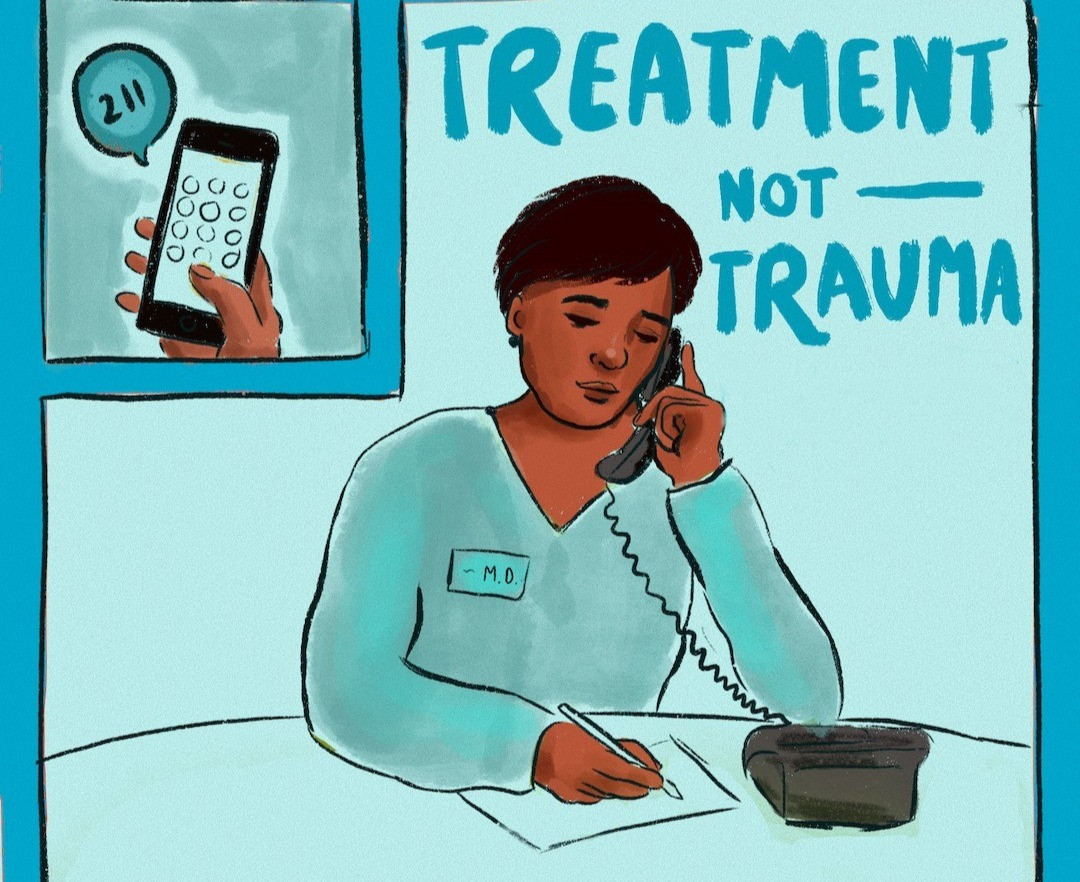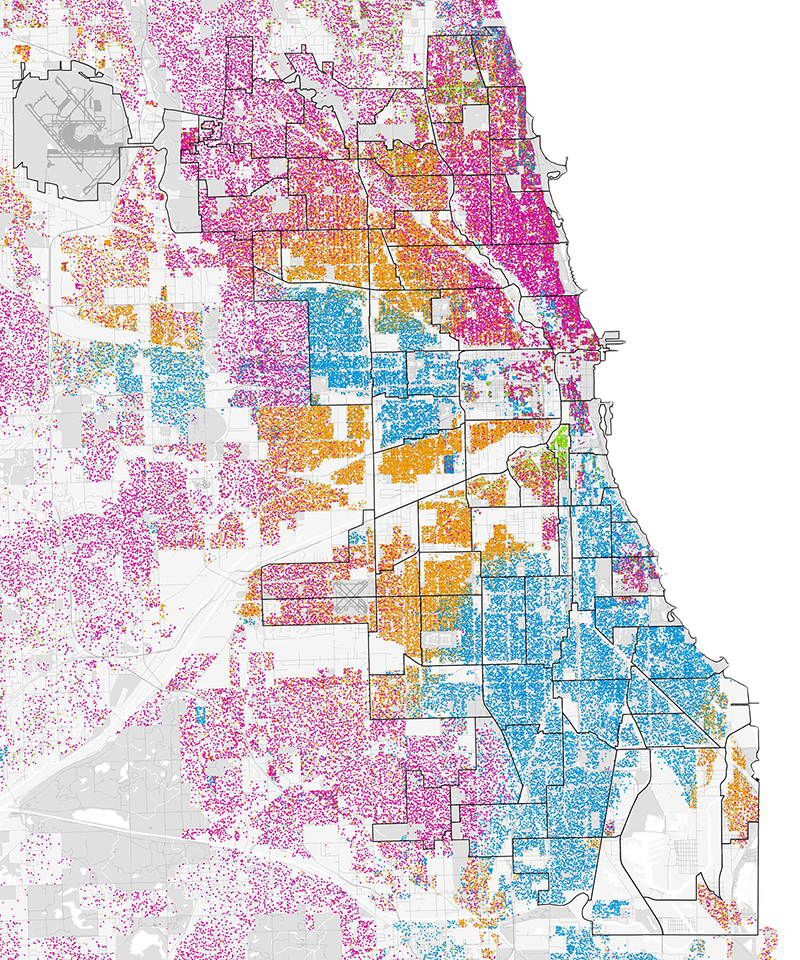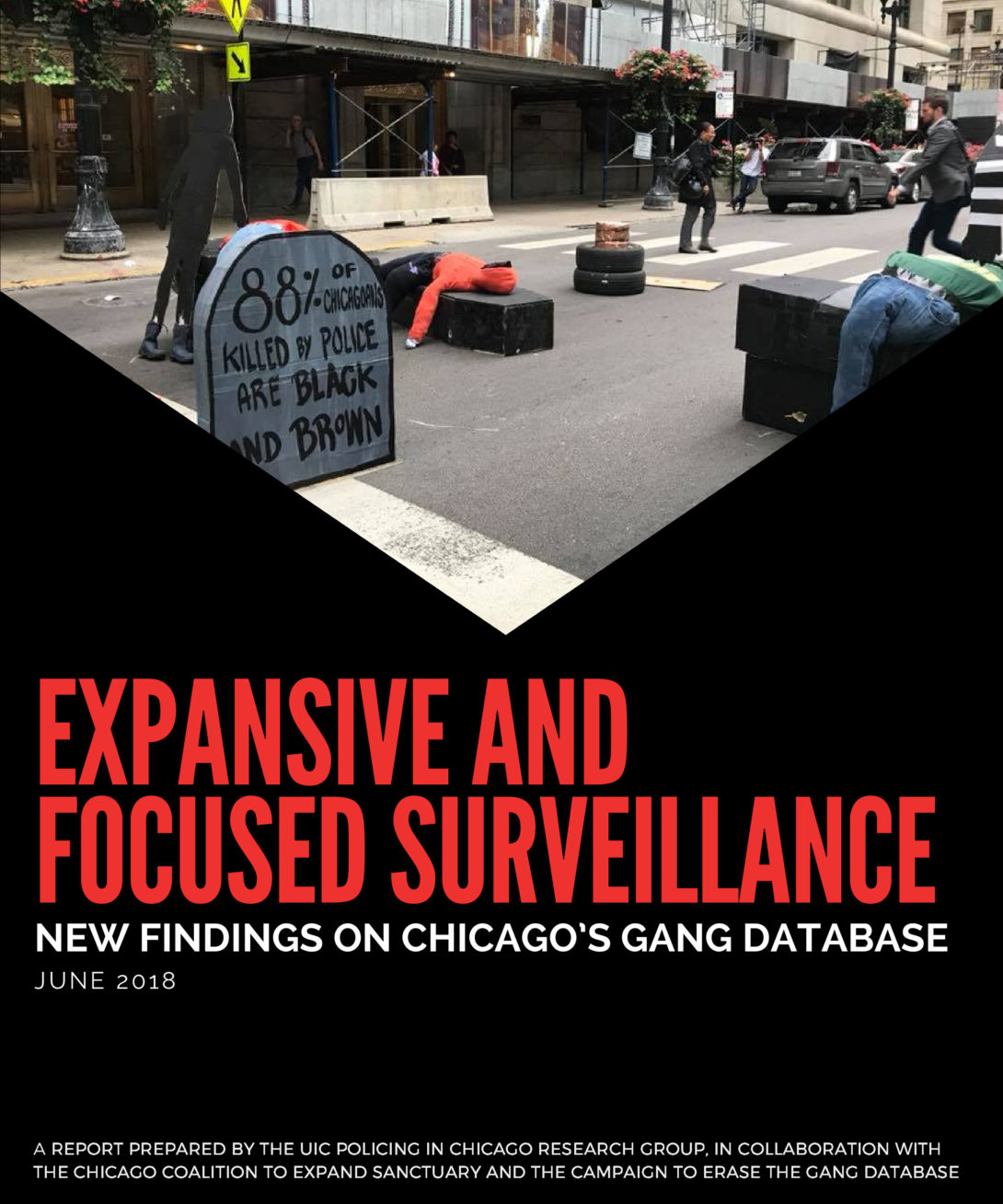Research Practicum
Hands-on research experience for our graduate students
UIC Sociology's Research Practicum is a two-semester methodology course that alternates each year between a primarily quantitative method and a primarily qualitative method (although often these courses include mixed methods approaches). The practicum is taught by a faculty member who proposes a research topic for the year and the students learn about the topic and the methods covered, collect primary data, and then practice coding and analysis.
Treatment Not Trauma: Community Engaged Activist Research (2023)

Coordinated by associate professor Andy Clarno, the 2023 practicum in community engaged activist research developed a partnership with the Treatment Not Trauma campaign, led by the Consortium for Community Wellness. The CCW is a coalition of community organizations that has been working since 2018 to reopen Chicago’s closed public mental health clinics and to remove police from the crisis response system. Using trauma-informed research methodologies, the UIC research team conducted interviews with people interested in sharing their experiences and offering recommendations for developing a healing centered mental health crisis response system in Chicago. The purpose of the story collection project is to understand: What structures does Chicago have in place for responding to mental health crises? What role do these structures play in either reproducing or reducing inequality? And how do people who have experienced these structures envision a more effective and more just mental health support and crisis response system? Our collaboration with the CCW created a direct avenue through which the stories that people share with the UIC research team can be used to advocate for policy changes. Students in the research practicum gained experience conducting qualitative interviews, analyzing interview data, and writing for academic and public audiences. Throughout the practicum, students also grappled with the possibilities and challenges of working ethically with communities in struggle and navigating the politics of community-engaged research.
Experimental Methods in Sociology (2021)
Since science began, experiments have been the time honored, gold standard. Yet, in sociology we rarely use them, and indeed may even look at them with distrust, despite their many advantages for our work. In this practicum, coordinated by former Department Head, Dr. Michael Emerson students critically examined several examples of experiments in the social sciences, including the more recent advance of computer-assisted versions. In so doing, they learned the do’s and don’ts of creating experiments to improve our research. As a class, we then designed our own experiment. Finally, the course culminated with students designing and carrying out their own experiments, tailored to their specific research interests. Completing this course empowered students to confidently, competently, and creatively use experimental designs in their research and provide a formidable tool for publishing.
Explaining Racial Inequality in Chicago (2018)

Led by Professor Maria Krysan, in collaboration with Professors Tyrone Forman and Amanda Lewis, this research practicum involved a multi-methods project using focus groups, a large-scale online survey of 1,200 people, and more than 100 in-depth interviews to explore the question: How do Chicagoans explain the racial inequality that defines our city? We built on the UIC Institute for Research on Race and Public Policy’s portrait of Chicago’s vast racial inequality in education, economics, justice, and health, and were motivated by the idea that an important ingredient for identifying solutions to this inequality is a clear understanding of how the public explains these racial disparities. Our study also makes an innovative contribution to decades of scholarship on racial attitudes that has insufficiently adapted to contemporary racial dynamics and neglected the beliefs of racial/ethnic minorities.
Students in the research practicum gained experience using multiple quantitative and qualitative methods, including focus groups, survey research, and in-depth interviews. The faculty and student collaboration designed and conducted focus groups to hone the research questions, completed telephone pretest interviews to inform the design of the online survey questionnaire, and conducted in-depth interviews to explore in more detail the nuances and sources of people’s attitudes toward racial inequality in the Chicago area. During Fall 2018, students and faculty will begin analyzing the data from both the interviews and the online surveys.
Funding for this project was provided by the Institute for Policy and Civic Engagement, Institute of Government and Public Affairs, Institute for Research on Race and Public Policy, and UIC’s Department of Sociology and the College of Liberal Arts and Sciences.
Policing in Chicago Research Group (2017)

Led by associate professor Andy Clarno, this research practicum involved a social justice ethnography and the formation of University of Illinois at Chicago’s Policing in Chicago Research Group. The research workshop brings faculty and students at UIC into conversation with community organizations in Chicago. The group is studying the ways that advanced data analysis and coordination between local and federal law enforcement agencies have transformed policing in Chicago.
The group has released the following reports:
- Expansive and Focused Surveillance: New Findings on Chicago’s Gang Database (June 2018)
- Tracked and Targeted: Early Findings on Chicago’s Gang Database (February 2018)
Students in the research practicum gained experience using multiple qualitative research methods, including archival research, analysis of available internet data, writing FOIA requests, developing qualitative interview protocols, and conducting in-depth interviews with police, lawyers, community organizers, and people directly impacted by policing in Chicago.
In addition to the publicly accessible reports, several students in the UIC Policing in Chicago Research Group are writing scholarly articles based on their research. They have also presented their findings at academic conferences, community meetings, and teach-ins across the city.
Research Practicum Courses Summary
| Research Practicum | Research Methods | Faculty Investigator |
|---|---|---|
| Treatment not Trauma: Community Engaged Activist Research (2023) | In-depth interviews | Andy Clarno |
| Experimental Methods in Sociology (2021) | Experimental Methods | Dr. Michael Emerson |
| Explaining Racial Inequality in Chicago (2018) | Focus groups; surveys; in-depth interviews | Maria Krysan |
| Policing in Chicago Research Group (2017) | In-depth interviews; qualitative analysis; archival research | Andy Clarno |
| Chicago Area Study: Physician Cultural Competence and Patient Satisfaction (2016) | Surveys; in-depth interviews | Laura Hirshfield |
| Chicago Neighborhoods-Schools Connection Study (2015) | In-depth interviews | Amanda Lewis |
| Chicago Area Study: Political Knowledge and Political Efficacy as Drivers of Civic Engagement in National and Local Politics (2014) | Surveys; in-depth interviews | Alexandra Filindra and Noah Kaplan (UIC Political Science) |
| The Millennial Project: Growing up in the 21st Century (2013) | In-depth interviews | Barbara Risman |
| Chicago Area Study: A Survey of Child Care Center Directors on Chicago's North and West Sides (2012) | Mixed methods: combining surveys and in-depth interviews with a stratified random subset | Rachel Gordon |